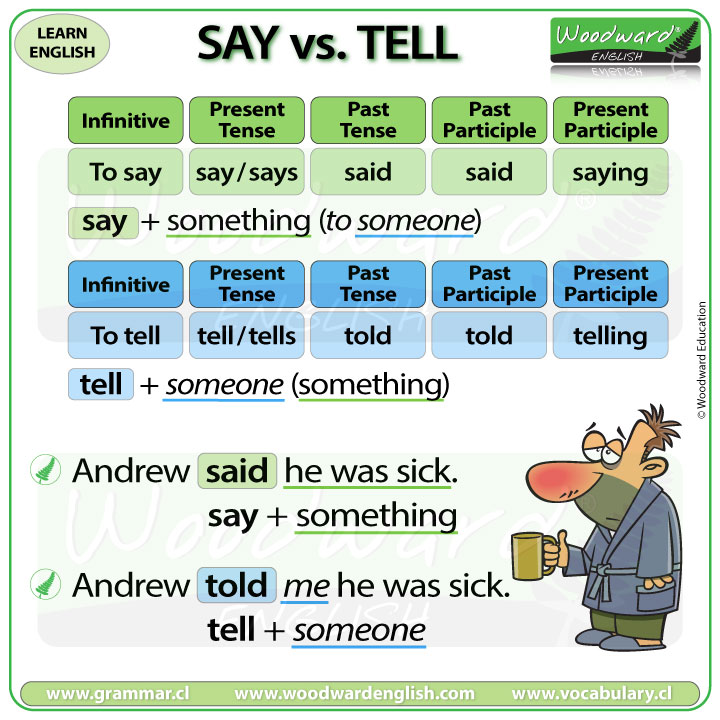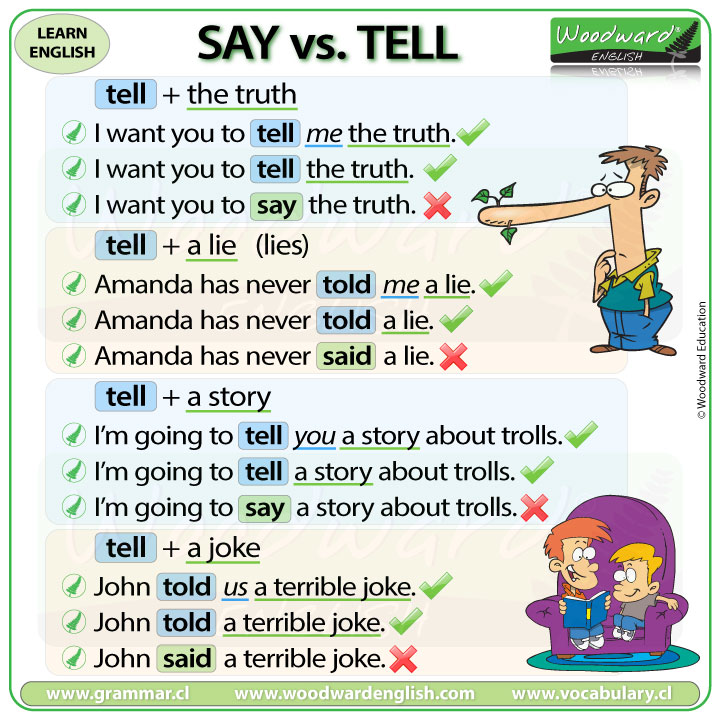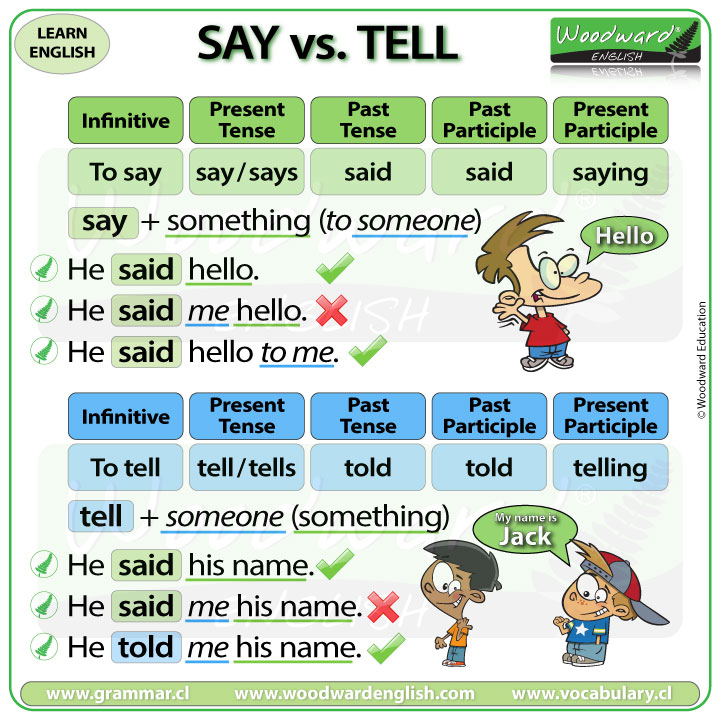The difference between SAY and TELL in English
- Andrew said he was sick.
- Andrew told me he was sick.
In general:
Say + something
Tell + someone

Let’s look at each verb in more detail…
SAY
Say = to express something in words.
You say SOMETHING
Say is an irregular verb:
Infinitive: to say
Present tense: say / says (Be careful with the pronunciation of says: /sez/)
Past tense: said
Past participle: said
Present participle: saying
For example
- He said hello.
He said something… hello is that “something”
NOTE: You cannot say: He said me hello. (NOT correct)
Say does not have an object pronoun directly after it (me, him, her, us, etc.)
You can say something (to someone)
- He said hello to me.
Example Sentences with SAY
Remember, it is SAY + SOMETHING
- How do you say ‘chicken’ in Spanish?
- I said goodbye to him.
- We didn’t say anything.
- Cecilia was saying the same thing.
- They didn’t say what was wrong
TELL
You tell SOMEONE (something)
Tell is an irregular verb:
Infinitive: to tell
Present tense: tell / tells
Past tense: told
Past participle: told
Present participle: telling
Look at this sentence.
- He said his name.
He did not say his name to a specific person. We do not know who the listener is.
What if he is talking to me?
We cannot say: He said me his name. (This is NOT correct)
You TELL someone something. So it becomes:
- He told me his name. (This is correct)
Let’s look at some example sentences:
- She told me her name.
- He told us his secret.
- Can you tell me the time please?
- The teacher told them to put their books away.
Did you notice how there is a verb instead of a thing in the last sentence?
You tell SOMEONE to do something.
(The second verb is in the infinitive …. TO + verb)
This is usually a command or for instructions. For example:
- I told Steve to be quiet.
- They told my sister to turn her music down. (Turn down = to reduce the volume)
Tell can be used with wh-words (where, whn, what, also how)
The order is…
Tell + someone + (where/when etc.) + verb
- They told us where to find the hotel.
- He told me how to fix my computer.
- Can you tell me when you are ready?
- I told you what happened.
Tell can be used with or without an object pronoun in the following cases:
– Tell + the truth
- I want you to tell me the truth.
- I want you to tell the truth.
- I want you to say the truth. (NOT correct)
– Tell + a lie (lies)
- Amanda has never told me a lie.
- Amanda has never told a lie.
- Amanda has never said a lie. (NOT correct)
– Tell + a joke
- John told us a terrible joke.
- John told a terrible joke.
- John said a terrible joke. (NOT correct)
– Tell + a story
- I’m going to tell you a story about trolls.
- I’m going to tell a story about trolls.
- I’m going to say a story. (NOT correct)

Said or Told?
Compare these two sentences:
- Jack said that he would be late.
- Jack told me that he would be late.
In the first sentence we don’t specify exactly WHO he was talking to. He just said something. The listener is not important.
In the second sentence we specify that he said this to ME, so we need the verb TOLD. The listener is specified.
So the basic rule is:
Say + something
Tell + someone
Say vs. Tell Exercises
Complete these sentences with SAID or TOLD:
- Julie _____ me that she has a new job.
- Julie _____ that she has a new job.
- We _____ we were going to be late.
- I think he has just _____ a lie.
- Our boss _____ us to work from home.
- They _____ that they were busy.
The answers appear in the video at the top of this lesson.
I hope you found this lesson about the difference between SAY and TELL useful.
Say vs. Tell Summary Chart

